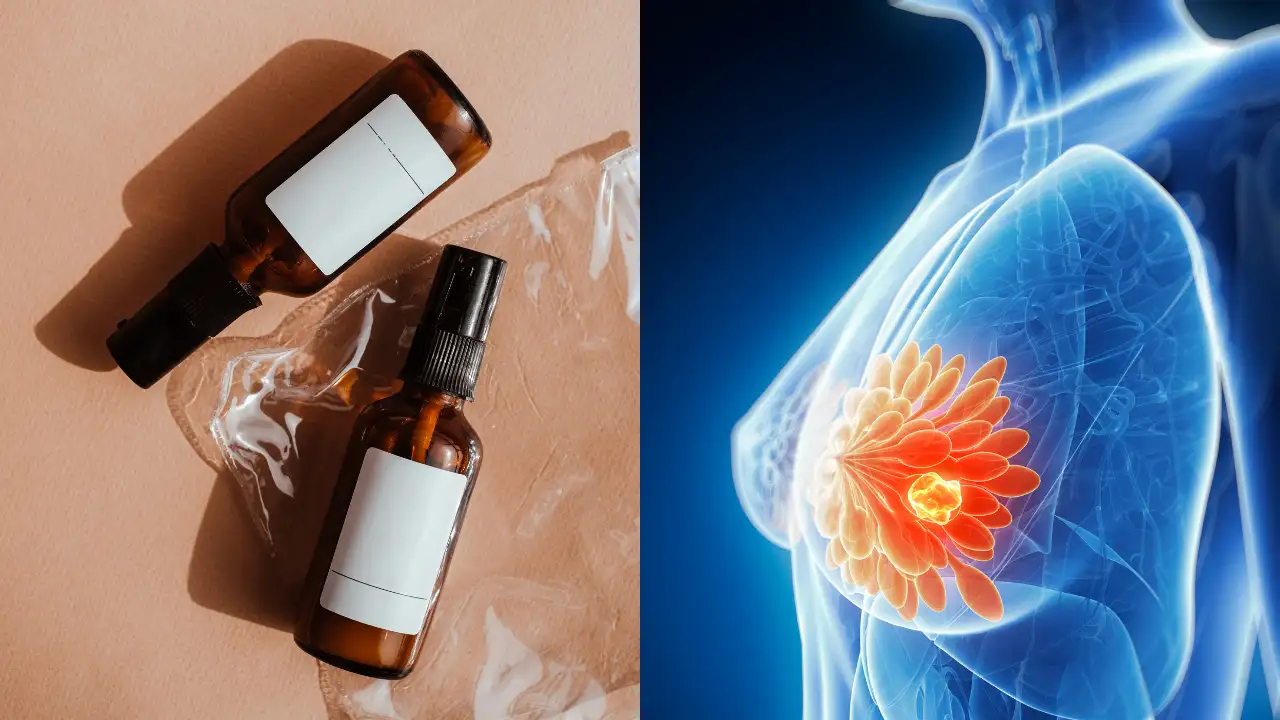By Supriya Ramesh
While breast health is influenced by a range of factors—genetics, diet, and exercise among them—emerging research suggests that your daily personal care routine could also be playing a role. From the lotions we slather on to the deodorants we swipe daily, a number of ingredients in these products are under growing scrutiny for their potential to disrupt hormonal balance and impact breast tissue. According to Dr Krithikaa Sekar, Consultant Radiation Oncologist at HCG, KR Road Bangalore, “There is increasing concern about how certain ingredients in personal care products may affect breast health—particularly endocrine-disrupting chemicals such as parabens, phthalates, and triclosan.” These chemicals, commonly found in deodorants, body lotions, shampoos, and cosmetics, can mimic oestrogen in the body—a hormone known to influence the development of some breast cancers. Dr Nanda Rajaneesh, Visiting Consultant in Breast Onco Surgery and Bariatric Surgery at Sakra World Hospital, Bengaluru, echoes these concerns. “Yes, personal care products can significantly affect breast health. Many of them contain harmful chemicals like parabens, which can mimic oestrogen in the body and may lead to abnormal cell growth and increase the risk of breast cancer.” In addition to parabens, Dr Rajaneesh flags phthalates—frequently used in fragrances—as well as oxybenzone, which is found in some sunscreens, for their ability to interfere with breast tissue. “Phthalates are endocrine disruptors that can interfere with normal cell function in breast tissue. Oxybenzone may even damage DNA in breast cells,” she explains. PFAs, PFOS, and artificial fragrances are other ingredients she recommends steering clear of, as they can harm the delicate skin on the breast. Adding another layer of concern, Dr Sekar points to the presence of microplastics in certain personal care products like exfoliants, toothpaste, and makeup. “These tiny plastic particles are not only harmful to the environment but are also being investigated for their potential to penetrate human tissues. Early findings suggest that microplastics may act as carriers for other toxic substances and may even trigger inflammatory responses in the body—factors that could indirectly impact breast health.” And it’s not just what you put on your skin. According to Dr Sekar, high concentrations of pesticides are found in the breast tissue of breast cancer patients. “Pesticides act as hormone mimics and get into your system seamlessly through contaminated food, milk, and poultry. Minimising contact with potentially harmful chemicals is a simple yet meaningful step in a more preventive lifestyle.” So what can women do to protect themselves? Both experts agree: choose cleaner, safer alternatives. “I recommend choosing products that are labelled free of parabens, phthalates, and microplastics,” says Dr Sekar. “Opting for organic or dermatologically tested natural alternatives can be a safer choice, especially for individuals with a family history of breast cancer.” Dr Rajaneesh advises looking for certifications like EWG Verified and always checking ingredient labels. “Avoid strong fragrances and use natural deodorants that allow the body to sweat and release toxins,” she says. She also recommends lifestyle practices that support overall breast health, including a balanced diet, regular hydration, exercise, and proper hygiene. “Gentle practices like dry brushing or lymphatic massage may help boost circulation and reduce toxin buildup,” she adds. An often-overlooked factor, according to Dr Rajaneesh, is bra quality. “It is very important for a woman to choose the correct bra size and the quality of the cloth, as the right size can help prevent pain related to the heaviness of the breast.” As research continues to evolve, one message is clear: being more mindful about what goes on your skin could be just as important as what goes into your body when it comes to protecting your breast health.
